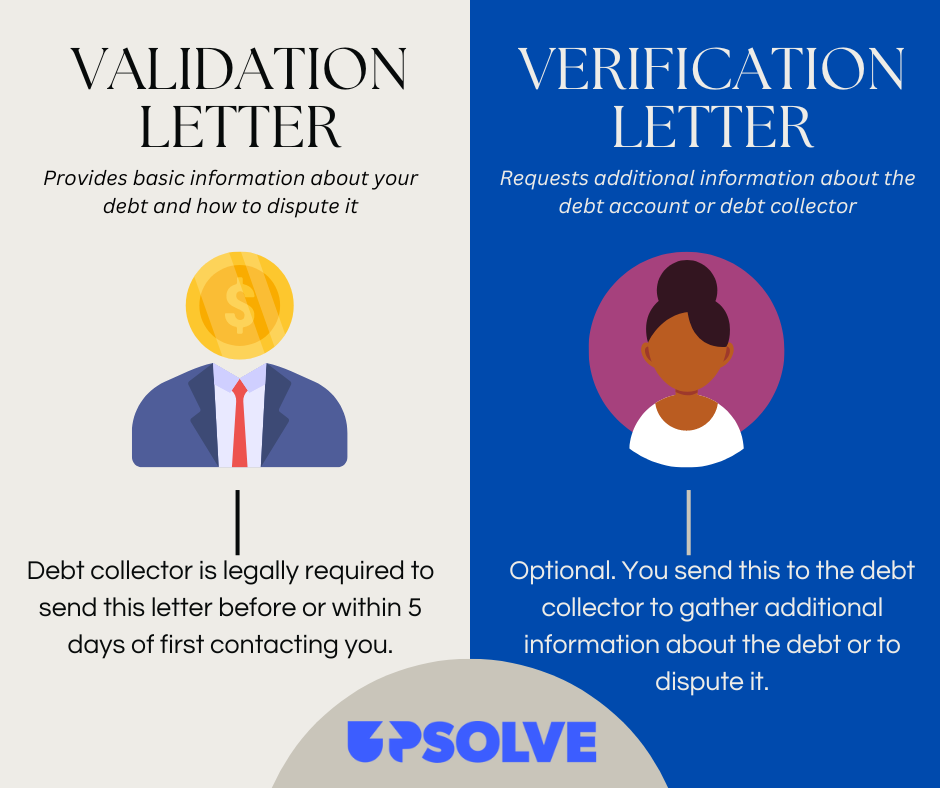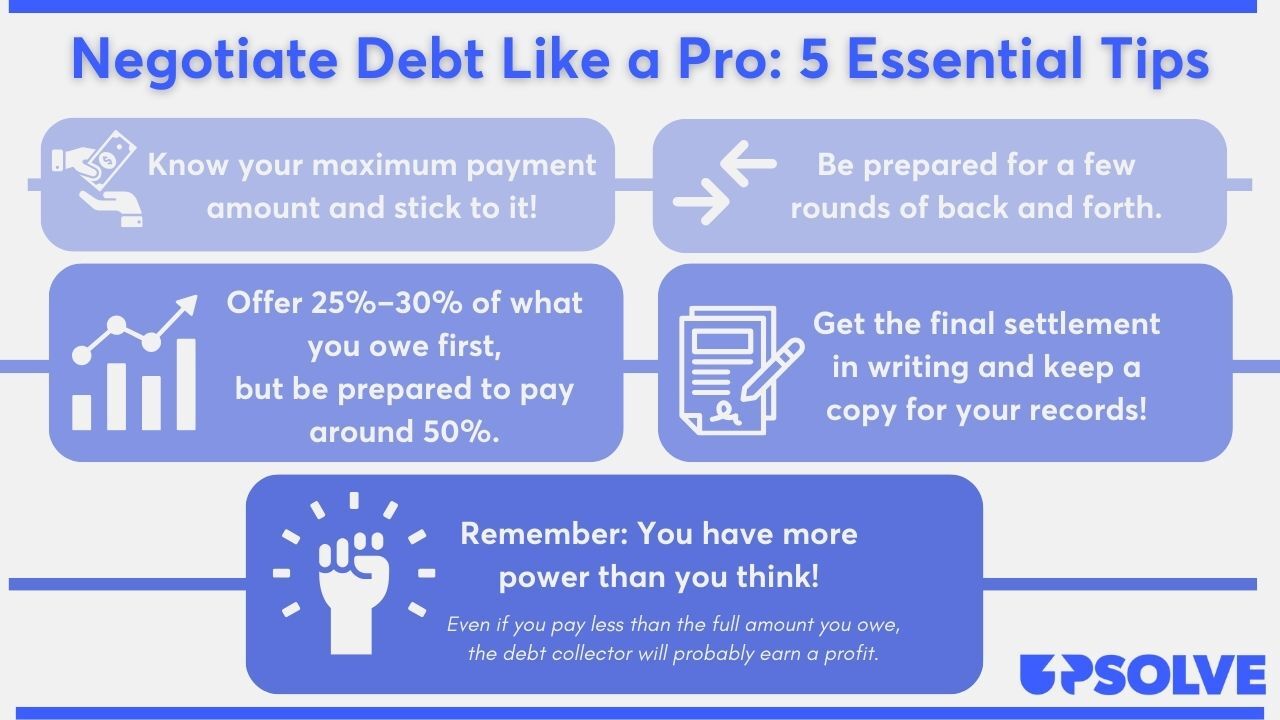How To Win Against 11 Charter Communications
Upsolve is a nonprofit that helps you eliminate your debt with our free bankruptcy filing tool. Think TurboTax for bankruptcy. You could be debt-free in as little as 4 months. Featured in Forbes 4x and funded by institutions like Harvard University — so we’ll never ask you for a credit card. See if you qualify →
11 Charter Communications is in charge of debt collection for Charter Communications Inc, better known as Spectrum. After confirming that you have an unpaid debt with Spectrum, you can negotiate a debt settlement with 11 Charter Communications to clear the debt. If 11 Charter Communications files a debt collection lawsuit against you, you can respond on your own by filing an answer form.
Written by the Upsolve Team.
Updated October 13, 2025
Table of Contents
- Why Is 11 Charter Communications Contacting Me?
- Do I Have To Pay 11 Charter Communications?
- How To Negotiate a Debt Settlement With 11 Charter Communications in 3 Steps
- Can You Still Negotiate a Settlement if There’s a Debt Lawsuit Against You?
- Tips for a Successful Debt Settlement
- How To Beat 11 Charter Communications in a Debt Lawsuit
- Let’s Summarize…
Why Is 11 Charter Communications Contacting Me?
If 11 Charter Communications contacts you, you may have a past-due internet, phone, or cable bill with Spectrum. 11 Charter Communications is the debt collection branch of Charter Communications Inc — better known as Spectrum.
Learn more in Upsovle’s article, How To Deal With 11 Charter Communications.
Do I Have To Pay 11 Charter Communications?
To figure out if you have to pay 11 Charter Communications, first make sure they can validate the debt (prove the debt is yours). If they validate the debt and you agree with the amount, then you probably have to pay or you may face serious consequences like bank account or wage garnishment. Note that the company must sue you and win before they can garnish your paycheck or bank account.
If you know you owe Spectrum for a past-due account, but you can’t afford to pay it off, you can try negotiating a debt settlement. If you’re successful, you can negotiate to pay less than the total debt amount and settle the account for good.
How To Negotiate a Debt Settlement With 11 Charter Communications in 3 Steps
Debt collection companies, like any business, are primarily focused on making money. This can actually work in your favor when it comes to debt settlement negotiations.
That’s because it costs 11 Charter Communications money to try to get you to pay off your account. Closing the account, even if you pay less than the full amount, saves them money in the long run. They may still even make a profit if you settle the account for less than the total.
In the debt collection world, it’s common for debt collectors to settle for 40% to 60% of the total amount; they just don’t want you to know that. But now that you do, you can prepare yourself.
Some debt collectors might reach out to you first with a settlement offer, but it’s usually a good move for you to initiate the conversation. It’s not as hard as you may think.
Step 1: Make Sure the Debt Is Valid
If 11 Charter Communications hasn’t sent you a debt validation letter yet, ask them for one immediately. Once they send you the validation letter, read it carefully and double-check all of the information in the letter with any information you have about the debt.
Use the information in the debt validation notice to verify that:
The debt belongs to you
11 Charter Communications owns the debt or has the legal authority to collect it
The debt amount is accurate
The Consumer Financial Protection Bureau (CFPB) requires third-party debt collectors, like 11 Charter Communications, to send you a debt validation letter and give you 30 days to dispute the debt.
If you need to dispute the debt or need additional information to validate the debt, send a debt verification letter.

Step 2: Figure Out What You Can Pay
Before you can negotiate, you need to determine how much of the debt you can realistically pay. Look at your monthly take-home pay, monthly expenses, and existing debt obligations (loans, mortgages, etc.) to figure out how much is left over.
The CFPB has a useful budget worksheet and debt worksheet you can use to help with this process. If you need further help, you can get a free consultation with an accredited nonprofit credit counselor. A credit counselor can also help you understand other debt-relief options if you’re struggling to repay multiple debts.
Lump-Sum vs. Payment Plan: Which Is Better?
Debt collectors are typically more open to accepting lump-sum payment offers as opposed to monthly payment plan offers. Or they may accept a lower settlement amount if you can pay in one payment. This is understandably difficult for most people, but if you’re anticipating any windfalls, like a tax return or work bonus, you could consider using that money to negotiate a lower lump-sum payment.
If you’re not able to pay in one lump sum, offer a repayment plan with monthly payments you’re comfortable with and a timeline you know you can follow. Some companies are more willing to accept a payment plan if you set up direct deposit withdrawals from your bank account.
Step 3: Make a Settlement Offer to 11 Charter Communications
Once you figure out how much of the debt you can pay, you can move forward with making 11 Charter Communications an offer. Follow the golden rule of negotiating: offer a lower amount than you want to pay to start, but be ready for some back and forth.
It’s usually best to make your settlement offer in writing and ask the debt collector to respond in writing too. This way, you have a record of your conversation.
Upsolve’s debt settlement letter template is a great resource for creating your settlement letter.
Don’t Just Negotiate the Amount… Negotiate Everything!
You don’t have to confine negotiations to the debt amount. You can also negotiate how you repay the debt and how 11 Charter Communications reports your account to credit bureaus. They can report your account as “paid in full,” “partial payment,” or “settled.”
It’s best for your credit score if they report your account as “paid in full,” so don’t hesitate to ask them to report the collection account to the credit bureaus this way in your settlement letter.
Can You Still Negotiate a Settlement if There’s a Debt Lawsuit Against You?
Yes, you can usually still negotiate a debt settlement even if you’ve been sued for the debt! If 11 Charter Communications is suing you, respond to the lawsuit and follow along with any court requirements (like court appearances) until the debt is settled and the case has been dismissed or closed. If you don’t, you risk losing the case without getting the settlement you want.
Tips for a Successful Debt Settlement
Negotiating can feel intimidating, but we’ve got your back! You can learn how to negotiate like a pro with our helpful tips:

For more tips on how to negotiate, read Upsolve’s article 5 Solid Steps for Negotiating With Debt Collectors.
How To Beat 11 Charter Communications in a Debt Lawsuit
You know you’re being sued when you receive a summons and a complaint. These are the two official court documents that notify you of a lawsuit and explain the claims made against you. Rest assured, debt collectors don’t usually jump right to a lawsuit. They’ll probably contact you many times before they file suit.
If you do get sued, it’s important to respond to the lawsuit quickly. If you ignore the debt lawsuit, 11 Charter Communications will probably win the case, which allows them to get an order to garnish your wages or bank account. Even if you’re in the midst of debt settlement negotiations with 11 Charter Communications, you still need to respond to the lawsuit.
If you're worried about responding on your own, but you can't afford a lawyer, you can draft a answer letter for free or a small fee using our partner SoloSuit. They've helped 234,000 people respond to debt lawsuits, and they have a 100% money-back guarantee.
SoloSuit is an affiliate partner, which means Upsolve may earn a small commission if you choose to use their paid service. This helps keep our services free.
Responding to a debt lawsuit is easier than you may think! Let’s break it down together.
Step 1: Read the Summons and Complaint Carefully
A summons is a document you receive when you are sued. It notifies you of the lawsuit and has the basic information you need to respond to the lawsuit.
While these documents can vary widely among states and courts, any summons will typically list:
The court’s name and address
Contact information of all parties involved
Your case number
Instructions on what to do next
The deadline for when to respond
A complaint is another type of official court document. Complaints arrive alongside summons and detail the specific claims 11 Charter Communications has against you, usually organized in numbered paragraphs.
Step 2: Fill Out an Answer Form (and Any Other Required Forms)
You’ll use an answer form to formally respond to the lawsuit. You might be able to find an answer form template on your court’s website. Not every court provides a template, but you can search for one by Googling “[court name] + answer form.” If your court does provide an answer template, read all instructions carefully and follow along.
If you’re confused by the process, reach out to the court clerk. A court clerk is a court official who can help you with processes and procedures. They can’t give you legal advice, though. If you want legal advice, look for legal aid services in your community.
The answer form gives you the opportunity to respond to the claims made by the plaintiff (the person suing you) and raise any defenses you may have. To learn more about defenses and the debt lawsuit process, read 3 Steps To Take if a Debt Collector Sues You.
Note: Some courts also require you to fill out additional paperwork, like certification of service forms. If you aren't sure if your court has additional requirements, ask your court clerk or check the court website.
Step 3: File the Answer Form With the Court and Serve on the Plaintiff
The answer form filing process is different for every court. Most courts let you file in person or via mail, but some let you e-file or email the form.
No matter how you file, delivering a copy to the plaintiff (the person suing you) is usually a requirement. You can mail a copy to 11 Charter Communications using the address that’s on your summons.
Let’s Summarize…
11 Charter Communications is the debt collection branch of Charter Communications Inc, better known as Spectrum. If 11 Charter Communications contacts you, validate the debt to ensure it’s real and belongs to you. Then, you can negotiate a settlement where you pay a smaller portion of the total debt. If they file a lawsuit against you, answer the lawsuit as soon as possible.